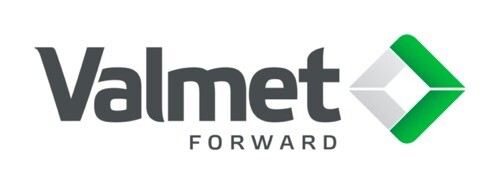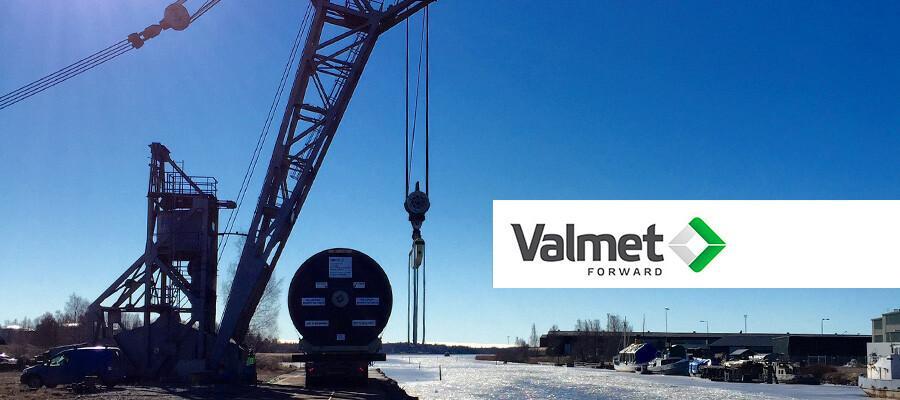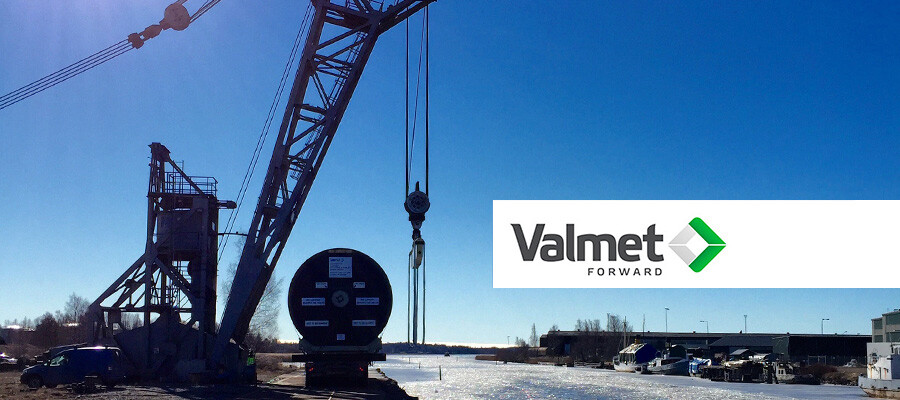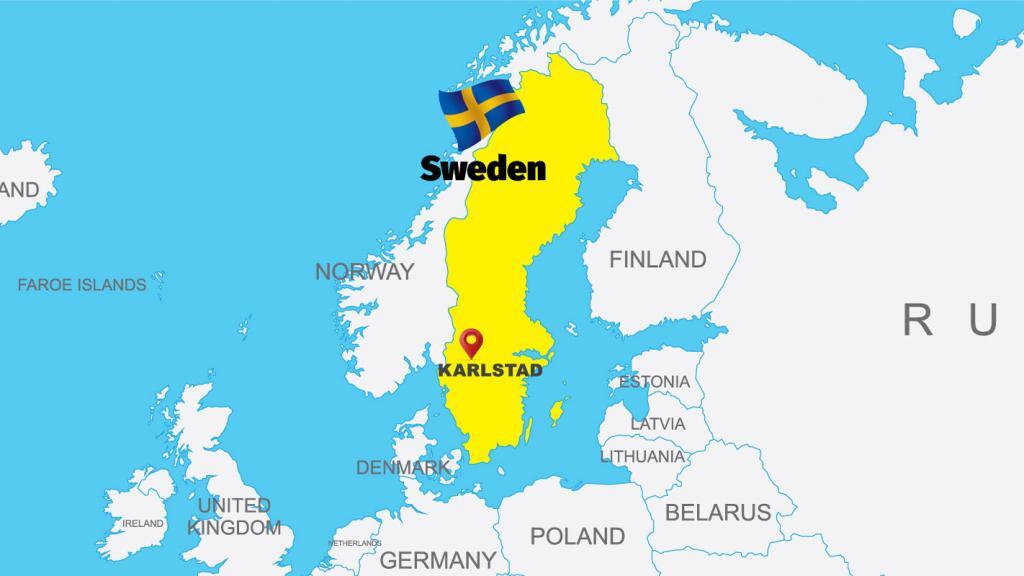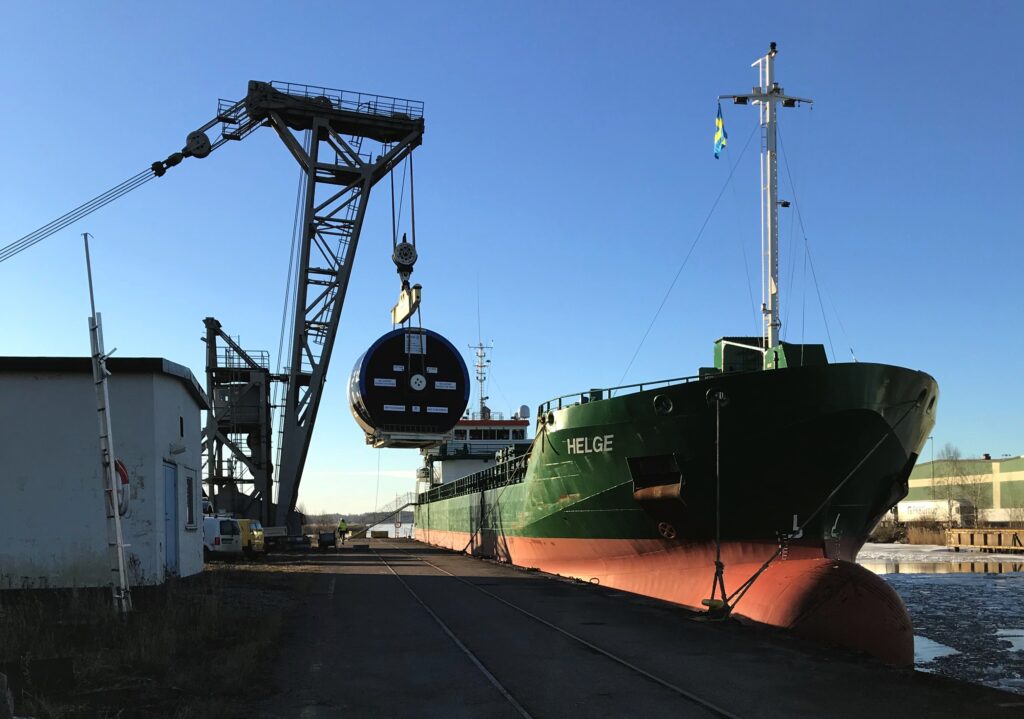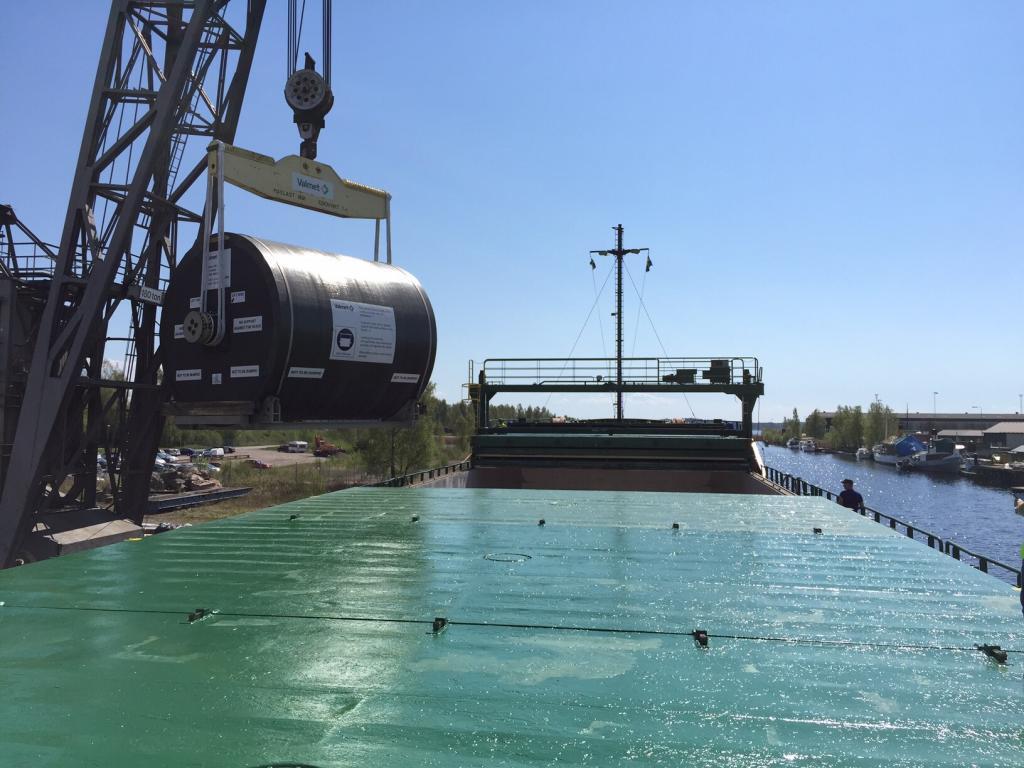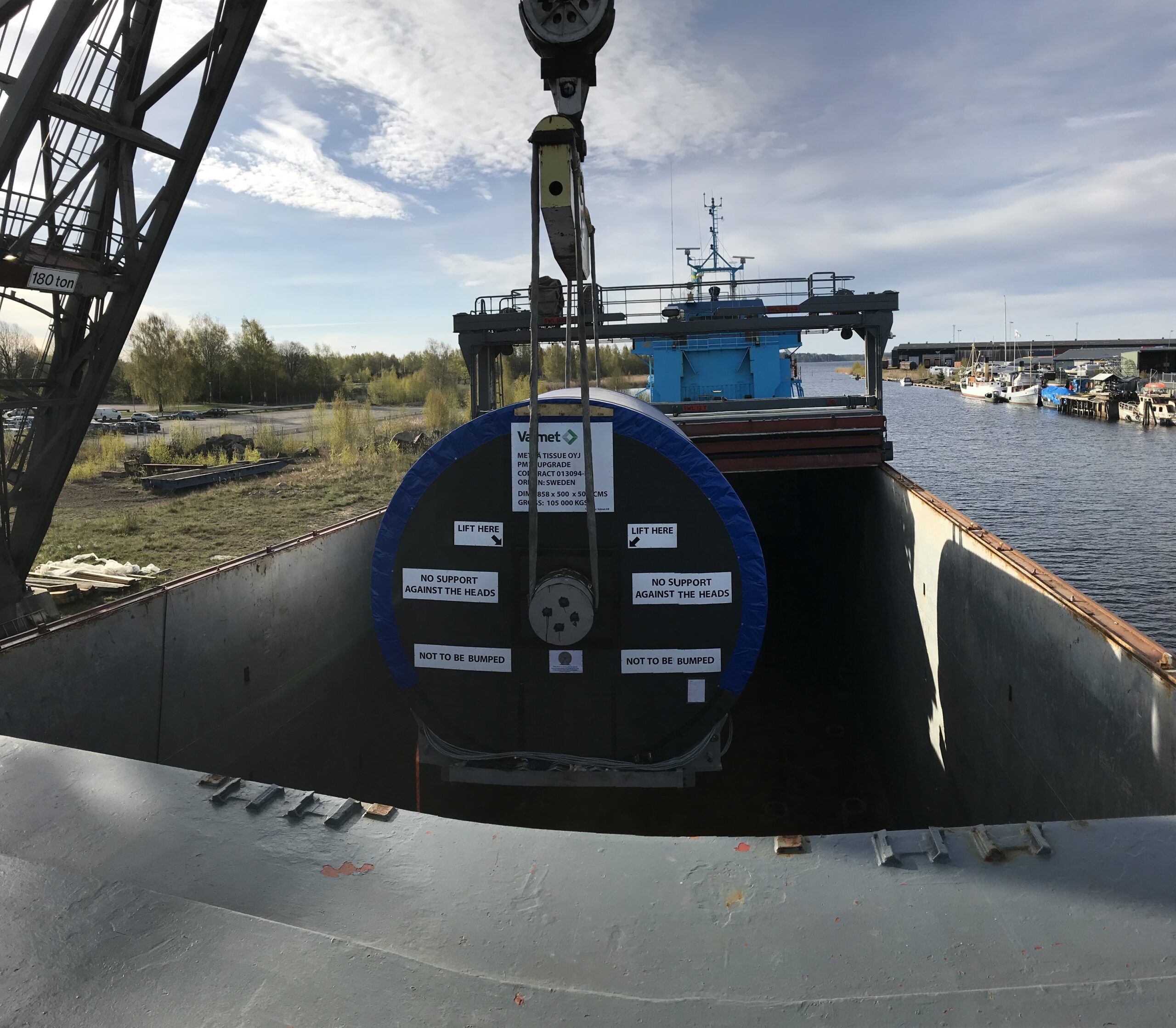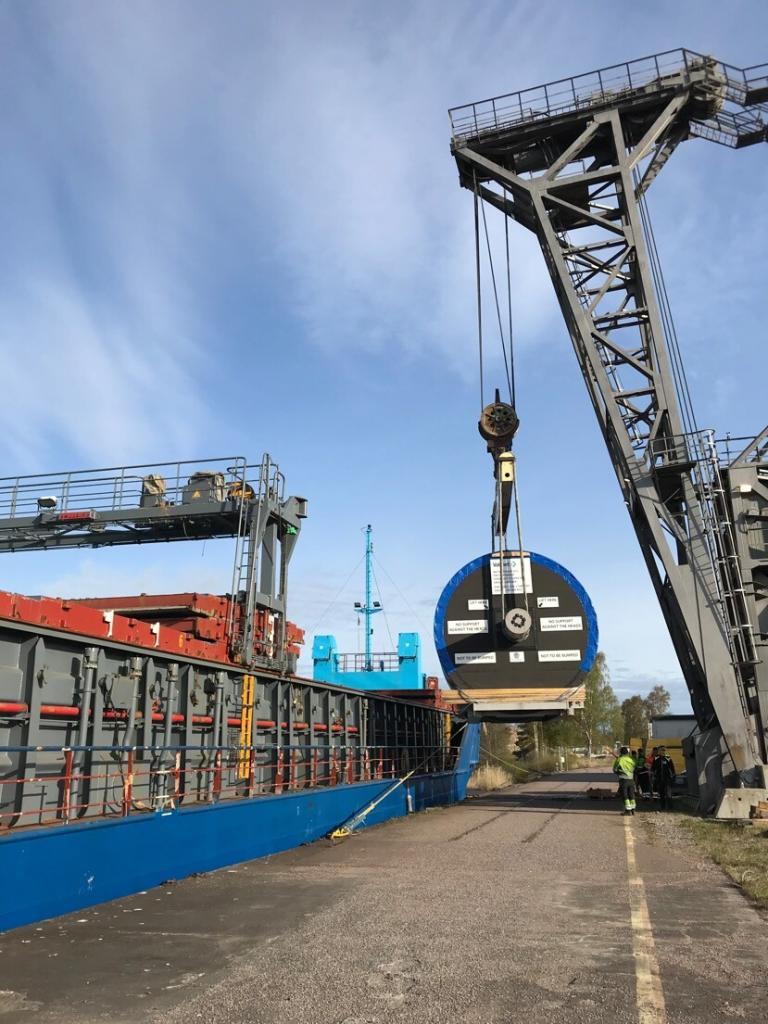Interview with
Mr. Peter Berggren
General Manager, Logistics
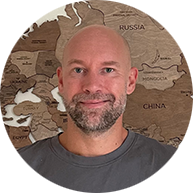
First and foremost Peter, please tell our readers about your career leading up to your current position at Valmet?
My logistics career started in 2007 picking video and computer games at a warehouse on an hourly basis. After about 4 months, I got permanent employment at the company and started to work more with shipping, export, import and customs processes. I remember that I loved the shipping part and quickly became a big nerd about everything connected with global transportation.
After about 4 years, I became the logistics manager. That promotion was, of course, flattering, but also quite scary at the same time. Suddenly you are the manager of your friends and colleagues. Anyhow, it was really fun and satisfying to be able to put into practice my own ideas about how to make us more effective and make good results for the logistics process at the company.
After nearly 2 years in this position, I felt that I was missing the shipping part more and more; I was ready for a new challenge. I noticed that Valmet was looking for a project forwarder. There are not so many companies in Karlstad with a straight-out shipping department, so without any regrets, I applied and got the job.
This was really exciting and also something different from shipping video games in boxes and on pallets, but anyhow the basics of transportation is the same even though the size of packages changes. I remember that I became an even bigger shipping nerd and enjoyed everything about working in a big global company like Valmet.
After about 1.5 years, my manager got a new job internally and with my background as a logistics manager, I was asked to apply for the now open managerial position. At first I felt: “Why? I enjoy my work. I still have a lot to learn.” Yet, once again, of course, I was flattered, and I applied.
In mid-December 2014, I became the logistics manager at Valmet Tissue Machinery Unit. That decision to become logistics manager at Valmet was the best decision in my career. I have developed myself personally big time and enjoy being a leader working with people. I have everything that I enjoy and appreciate today. It’s often challenging and really hard work in logistics and transportation, but also so much fun. You also get a lot of quick satisfaction and positive feedback when you manage to solve logistics challenges. That feeling is great and important. And last but not least, I have a world-class team of colleagues all over the world.
The product that you make at your Karlstad unit involves some very heavy and expensive pieces right? What can you tell us about a typical export project and what it involves in terms of volume/weight etc.?
We make tissue machines. An average project (depending on type of machine) is about 150 shipping units (40’OT containers or 13.6m trailers) and about 10-20% of the scope is considered high and/or heavy. The biggest piece is our Yankee dryer which is a Rotating Pressure Vessel to dry the tissue in the paper making process. The Yankee weight depends, of course, on the size of the machine, but it can be up to 7m in diameter and weighing in at 170-200mt.
Do you generally sell on FCA or CIF terms? In the case of CIF terms do you check the market for the best rates and solutions or do you for certain markets use the “same” forwarders? Do you sometimes book directly with the shipowners?
Normally, our selling price includes freight. We have many project forwarders to choose from who have signed Valmet’s frame agreement. We invite 3-6 freight forwarders into the RFQ, depending on the terms of delivery and how big the scope is. We have also worked directly with shipping lines and have had both good and bad experiences with that. Normally, shipowners don’t want to sign our frame agreement as is, which is of importance to work with us, because we do not wish to give special care or benefits to anyone in an RFQ. Everyone shall be quoting on the same base and terms and conditions in order to be fair.
In your view, how do you feel about the experience of the project freight forwarders you deal with? Have they developed over the years, and have they, shall we say, become “better” or “worse”?
Hard to say better or worse — it’s a people business from my point of view.
My opinion is that no forwarding company is better than the people who work there. It’s like a restaurant— it can look fancy from the outside and inside, but the food is still not better than the chefs inside the kitchen. For me, it is all about trusting the persons we work with. As an example, I don’t find trust in a forwarder saying that delivering a Yankee dryer is easy and/or that they see no bigger issues because my company and I have delivered heavy items before. That approach makes me wonder if they have done their homework and walked the extra mile for us. Experience is, of course, important, but to make a heavy haul successful, you need to be able to have good local connections for the on-carriage and maintain a professional attitude and approach to authorities, be on the tips of your toes, be in front of (on top of) everything.
The Covid-19 pandemic has wreaked havoc with supply chains all over the world. How has this pandemic impacted you at Valmet Karlstad?
We have managed to deliver our projects and also managed to win new projects during the pandemic. Customer meetings on Teams works too, and in some cases, it is more effective. These have, of course, been extremely challenging times, and the costs we cargo owners are still paying in order to keep our promises and time schedules to our customers is outrageous. During these circumstances though, we have been forced to think outside the box in the supply chain, so there have also been some new lessons learned and other good developments that we could benefit from onwards.
Valmet is a big group in paper- and tissue-making machinery worldwide. How many employees are there in the company globally and in your unit locally? Being part of a bigger group, does it also mean that you coordinate the purchase of shipping space with each other?
Globally, there are 17,000employees. In the Tissue Unit, Karlstad there are 430. All in all at the Valmet, Karlstad location there are about 700 employees.
We have, of course, global nominations for standard cargo. For project cargo we try to combine some RFQ’s if we happen to have other Valmet units delivering projects to the same destination within a reasonable time frame.
What are the main problems that you face from a logistics standpoint nowadays?
The main issues are the costs for transportation and the reliability of lead-time. Also, I feel a bit tougher approach from authorities to get transportation permits for heavy pieces in the last few years in some countries at least. Handling time has increased, and we receive more costly demands before we can receive the permit for transportation.
Looking into your crystal ball, how do you see the market for Valmet Tissue in the medium and long term?
There is a constant need for tissue. No one who has started using toilet paper wants to be without it. But it is increasingly difficult to look into the crystal ball given the current circumstances with pandemics, war and inflation.
